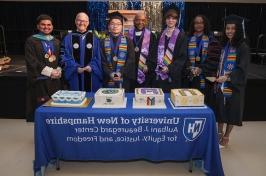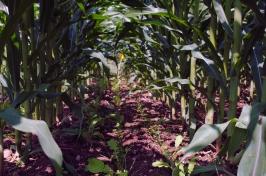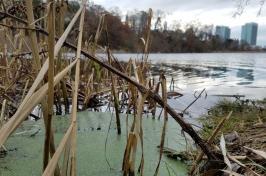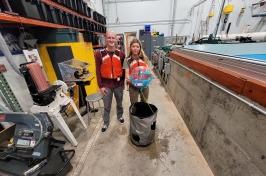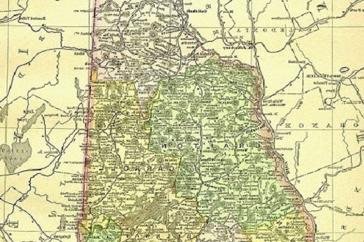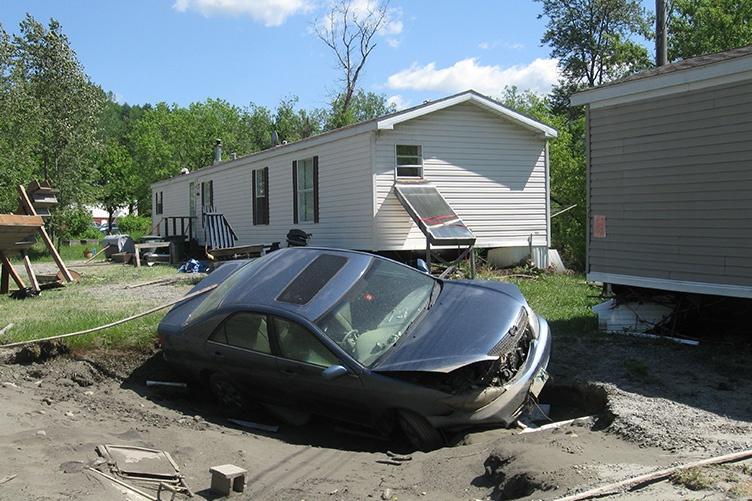
佛蒙特州的一个移动家庭社区. Courtesy of Kelly Hamshaw and Dan Baker of the University of Vermont who are part of the NOAA grant.
The University of New Hampshire is part of a new regional collaboration to study the climate change resilience of mobile home parks in the Northeast. With $79K in funding from the National Oceanic and Atmospheric Association’s (NOAA) Climate Adaptation Partnerships program, the project brings together researchers from the Universities of New Hampshire, 缅因州和佛蒙特州, 以及新英格兰北部的三位气候学家.
Mobile home park communities are commonly found in rural and ex-urban areas in the northern New England states of Maine, 新罕布什尔州和佛蒙特州. These communities are especially vulnerable to climate-related extreme events. Most parks were developed before land use regulations were in place and are sited in low-cost, but often unsuitable and hazardous locations vulnerable to risks presented by climate change.
“Mobile home park management structures and practices vary from one community to the next and in many parks, 居民可以拥有自己的房子,但不拥有土地,” 玛丽Stampone,联合首席研究员,主要研究副教授 地理位置 以及新罕布什尔州的气候学家. “这些因素带来了一系列不同的挑战, 独特的移动住宅公园社区, that must also be considered when assessing the risks posed by climate change.”
The researchers will use the NOAA grant to develop a deeper understanding of how mobile home parks in Maine, 新罕布什尔州和佛蒙特州正受到气候变化的影响. They will create a database of mobile home park communities in the three states — Vermont is the only of the three that currently maintains a mobile home park registry — and convene meetings with representatives of the mobile home park communities to determine climate change impacts in different ecoregions across the Northeast. The meetings will also build relationships that will support climate resilience efforts with mobile home park frontline communities.
The researchers will also identify key external agencies and connect local and non-local stakeholders like state agencies and nonprofits that can reduce the vulnerabilities of the communities to climate change. They will hold a final cross-state virtual meeting of all key stakeholders to discuss commonalities across each state and to develop an action roadmap for future collaboration and information sharing.
-
编制的:
苏珊·杜马斯88年02年 文理学院














